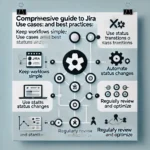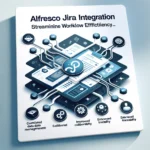TestNG vs. NUnit: A Comparative Analysis of Java and .NET Testing Frameworks
In the world of software development, automated testing has become a critical practice to ensure the stability and reliability of applications. For developers working with Java and .NET technologies, two prominent testing frameworks, TestNG and NUnit, have gained popularity in their respective ecosystems. In this blog post, we will delve into the similarities and differences between TestNG and NUnit, highlighting their unique features and benefits. By the end of this comparison, you’ll have a clearer understanding of which framework is better suited for your specific development needs.
TestNG: The Powerful Testing Framework for Java
TestNG, inspired by JUnit and NUnit, was designed to address some limitations of JUnit while incorporating new functionalities. Specifically tailored for Java, TestNG is known for its flexibility and adaptability, making it a popular choice among Java developers.
Key Advantages of TestNG
- Test Configuration: TestNG allows developers to configure test suites using XML files, enabling them to organize and execute tests based on various parameters and conditions. This feature is particularly valuable when dealing with extensive test suites or running tests in multiple environments.
- Parallel Execution: TestNG provides native support for parallel test execution, allowing you to distribute tests across multiple threads, processes, or even machines. This capability significantly reduces test execution time and is particularly useful for large-scale projects.
- Dependency Management: TestNG allows developers to define dependencies between test methods, ensuring that a test runs only if its dependencies pass successfully. This promotes better test design and enhances test reliability.
- Rich Annotations and Grouping: TestNG offers a wide range of annotations that allow developers to define test behaviors, set priority, and handle pre- and post-test actions. Test grouping based on specific criteria enhances organization and readability of test cases.
https://synapsefabric.com/2023/07/26/testng-vs-junit-choosing-the-right-java-testing-framework/
NUnit: The .NET Testing Framework of Choice
NUnit is a widely-used testing framework for .NET developers. It is influenced by JUnit’s principles and is built specifically for the .NET platform, supporting multiple languages such as C#, VB.NET, and F#.
Key Advantages of NUnit
- Simplicity and Ease of Use: NUnit’s simple and intuitive API makes it easy for .NET developers to start writing tests quickly. Its straightforward test structure makes it an ideal choice, especially for smaller projects or those new to automated testing.
- Community and Support: With a large and active community, NUnit has a wealth of documentation, tutorials, and support resources available. Developers can quickly find solutions to common testing challenges and stay updated on best practices.
- Parameterized Tests: NUnit supports parameterized tests, enabling the reuse of test logic with different inputs. This feature simplifies testing scenarios with multiple data sets and improves test coverage.
- Extensibility: NUnit is highly extensible, allowing developers to create custom extensions and add-ons to enhance the testing framework based on specific project requirements.
Choosing the Right Framework:
The decision between TestNG and NUnit largely depends on the technology stack of your project and your team’s familiarity with the respective frameworks.
Choose TestNG if
- You are working on Java-based projects and require powerful features like parallel execution, dependency management, and flexible test configurations.
- You need to test applications in different environments and want to optimize test execution time.
Choose NUnit if
- You are developing applications using .NET technologies and prefer a simple, easy-to-use testing framework.
- You value the extensive community support and resources available for NUnit.
TestNG and NUnit are both robust testing frameworks that cater to the specific needs of Java and .NET developers, respectively. While TestNG offers advanced features like parallel execution and dependency management, NUnit excels in simplicity and ease of use. Ultimately, the choice between TestNG and NUnit depends on the specific requirements of your project, the development environment, and your team’s expertise. Regardless of your choice, adopting an automated testing framework will undoubtedly lead to more stable, reliable, and efficient software development processes.






